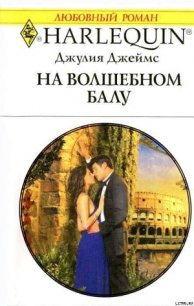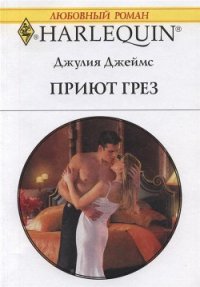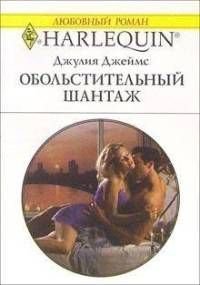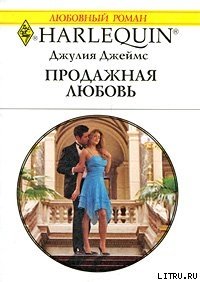Julia Ward Howe - Richards Laura E. (бесплатная регистрация книга TXT) 📗
Beside these were some unknown to her. She saw now for the first time the sweet face of Lucy Stone, heard the silver voice which was to be dear to her through many years. "Here stood the true woman, pure, noble, great-hearted, with the light of her good life shining in every feature of her face." These men and women had been the champions of the slave. They now asked for wives and mothers those civil rights which had been given to the negro; "that impartial justice for which, if for anything, a Republican Government should stand." Their speech was earnest; she listened as to a new gospel. When she was asked to speak, she could only say, "I am with you."
With the new vision came the call of a new duty. "What can I do?" she asked. The answer was ready. The New England Woman Suffrage Association was formed, and she was elected its first president. This office she held, with some interruptions, through life. It is well to recall the patient, faithful work of the pioneer suffragists, who, without money or prestige, spent themselves for the cause. Their efforts, compared to the well-organized and well-financed campaigns of to-day, are as a "certain upper chamber" compared with the basilica of St. Peter, yet it was in that quiet room that the tongues of Pentecost spoke.
"I am glad," she often said, "to have joined the suffrage movement, because it has brought me into such high company."
The convert buckled to her new task with all her might, working for it early and late with an ardor that counted no cost.
"Oh! dear Mrs. Howe, you are so full of inspiration!" cried a foolish woman. "It enables you to do so much!"
"Inspiration!" said "dear Mrs. Howe," shortly. "Inspiration means perspiration!"
She says of her early work for suffrage:—
"One of the comforts which I found in the new association was the relief which it afforded me from a sense of isolation and eccentricity. For years past I had felt strongly impelled to lend my voice to the convictions of my heart. I had done this in a way, from time to time, always with the feeling that my course in doing so was held to call for apology and explanation by the men and women with whose opinions I had hitherto been familiar. I now found a sphere of action in which this mode of expression no longer appeared singular or eccentric, but simple, natural, and, under the circumstances, inevitable."
It was no small thing for her to take up this burden. The Doctor, although a believer in equal suffrage, was strongly opposed to her taking any active part in public life. He felt as Grandfather Howe had felt forty years before when his son Sam spoke in public for the sake of Greece; it jarred on his traditions. Others of the family also deplored the new departure, and her personal friends almost with one accord held up hands of horror or deprecation. These things were inexpressibly painful to her; she loved approbation; the society and sympathy of "kent folk," whose traditions corresponded with her own; but her hand was on the plough; there was no turning back.
Suffrage worked her hard. The following year the New England Woman Suffrage Association issued a call for the formation of a national body; the names signed were Lucy Stone, Caroline M. Severance, Julia Ward Howe, T. W. Higginson, and G. H. Vibbert. Representatives from twenty-one States assembled in Cleveland, November 24, 1869, and formed the American Woman Suffrage Association. There was already a "National Woman Suffrage Association," formed a few months earlier; the new organization differed from the other in some points of policy, notably in the fact that men as well as women were recognized among the leaders. Colonel Higginson was its president at one time, Henry Ward Beecher, Bishop Gilbert Haven, and Dudley Foulke at others. The New England Woman's Club also admitted men to membership: it was a point our mother had much at heart. She held that the Quaker organization was the best, with its separate meetings of men and women, supplemented by a joint session of both. She always insisted upon the salutary influence that men and women exercise upon one another.
"The two sexes police each other," she often said. She always maintained the importance of their united action in matters of public as of private interest. She was essentially a humanist in contradistinction to a feminist.
She worked for the American Association during the twenty-one years of its separate existence, first as foreign corresponding secretary, afterward as president, and in various other capacities. When, in 1890, the two societies united to form the National American Woman Suffrage Association, she became and continued through life one of the vice-presidents of that body. From the first, she was recognized as an invaluable leader. The years of philosophical study had made her mind supple, alert, quick to grasp and to respond, even as the study of languages brought her the gift of ready speech and pure diction. Her long practice in singing had given her voice strength, sweetness, and carrying power; above all, she was a natural orator, and speaking was a joy to her. The first time she ever made a speech in public was to a group of soldiers of the Army of the Potomac on the occasion of a visit to Washington during the war. She had driven out to visit the camp outside the Capital. Colonel William B. Greene disconcerted her very much by saying, "Mrs. Howe, you must speak to my men."
She refused, and ran away to hide in an adjacent tent. The Colonel insisted, and finally she managed to make a very creditable little speech to the soldiers.
Now, she no longer ran away when called upon to speak. Wherever the work called her, she went gladly; like St. Paul, she was "in journeyings often, ... in weariness and painfulness, in watchings often"; the journals are full of incidents picturesque to read, uncomfortable to live through. Occasionally, after some tremendous exertion, we read, "Maud must not know of this!" or, "No one must ever know that I took the wrong train!"
Much of her most important work for woman suffrage was done at the State House, Boston. In Massachusetts, the custom of bringing this subject before the legislature every year long prevailed. She always went to these hearings. She considered it a privilege to take part in them; counted them "among her most valued recollections." They extended over forty years or more.
These occasions were often exasperating as well as fatiguing. She never wearied of presenting the arguments for suffrage; she often suffered vexation of spirit in refuting those brought against it, but she never refused the battle. "If I were mad enough," she said once, "I could speak in Hebrew!"
She was "mad enough" when at a certain hearing woman suffrage was condemned as a "minority cause." Her words, if not in Hebrew, show the fighting spirit of ancient Israel.
We quote from memory:—
The Reverend ——: "The fact that most women are indifferent or opposed is a sufficient proof that woman suffrage is wrong."
Mrs. Howe: "May I ask one question? Were the Twelve Apostles wrong in trying to bring about a better social condition when almost the whole community was opposed to them?"
Dr. ——: "I suppose that question was asked merely for rhetorical effect."
Mrs. Howe (having asked for two minutes to reply, with the whispered comment, "I shall die if I am not allowed to speak!"): "I do not know how it is with Dr. ——, but I was not brought up to use the Bible for rhetorical effect. To my mind, the suffragists and their opponents are like the wise and the foolish virgins of the parable, equal in number but not in wisdom. When the Bridegroom cometh, may Dr. —— have his wedding garment ready!"




